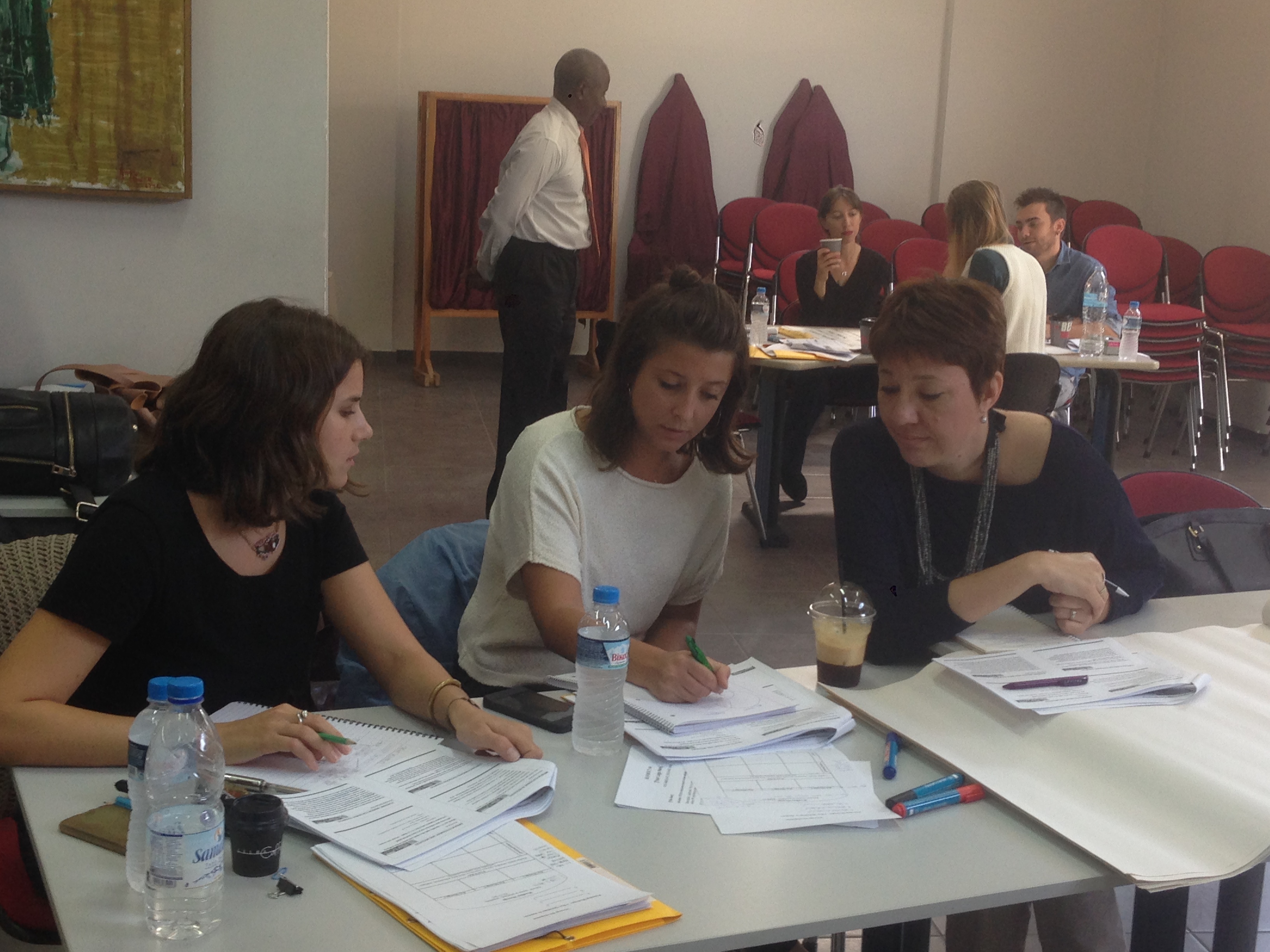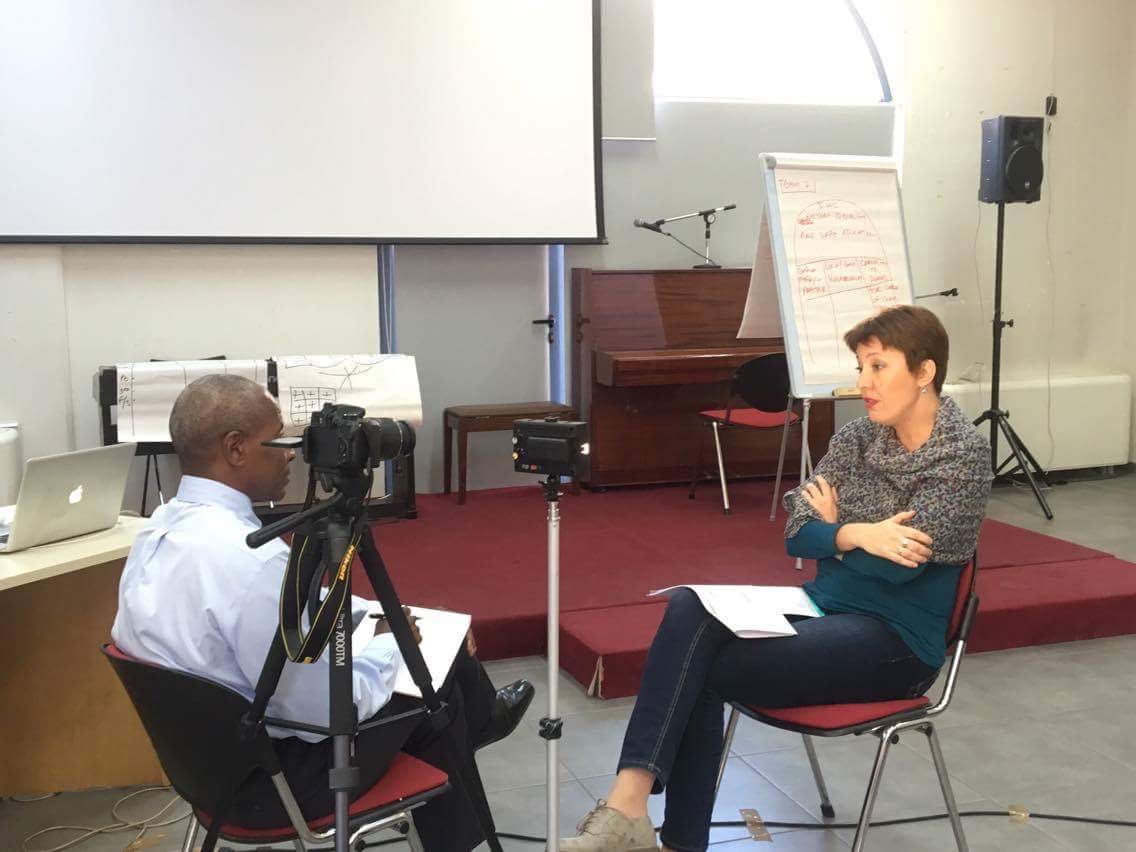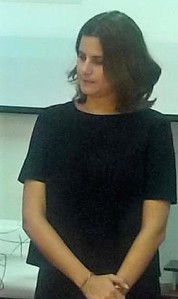Executive Leadership Workshop: Communication Strategy and Strategic Marketing for Cultural Organizations
Heritage Management Organization’s ongoing Executive Leadership Workshops on Heritage Management aiming at providing heritage managers with opportunities to develop their professional skills, continues with a steady stream of participants and some of the best instructors available today.
Communication Strategy and Strategic Marketing for Cultural Organizations
What does it take to be an effective communicator? The ability to put your thoughts coherently into words; presentation skills; presence of mind; a combination of all the above?
The participants of the Workshop on Communication Strategy and Strategic Marketing for Cultural Organizations experienced the opportunity to find ways to address this issue through an interactive 3 day course that combined a series of simulation of situations, writing exercises aimed at honing the skills of the participants reaching out to a specific audience, learning the basics of journalism and how to be an effective communicator. The participants ranged from current undergraduate students, recent graduates of the MA program in Heritage Management, PhD candidates, and professionals in the fields of PR and Communications. The workshop was held from the 26-28th of September 2016, in Elefsina.
With more than 30 years of experience as a journalist, Derwin Johnson, the instructor of this workshop, is an independent senior communication executive and educator, currently working as senior counsel at APCO worldwide. Mr. Johnson provides strategic and tactical guidance and is counsel to financial service firms, law firms, governments and Fortune 500 companies representing a wide range of industries, including airline, professional services, and technology, pharmaceutical, health care, hospitality as well as beauty and fashion. His range of clientele extends from governments to Non Profit organizations and Mr. Johnson breaks down the modes of communication according to each audience type. “The idea is to help them understand the type of audience one is addressing. Even something as simple as an Op-ed differs in its language than a Letter to the Editor or an article. Everything has its own voice and it is important to be perceptive enough.”
The 3 day workshop was divided into 3 major categories, as the 6 participants were broken up into 2 teams to tackle the various tasks assigned to them.

Day 1: Developing a Media Tool Kit and learning how to write like a journalist.
On their first day, the workshop’s participants were ‘greeted’ with a ‘welcome package’ that contained a heavy yellow folder with printed material and bibliography on the skills and strategies of an effective communicator. After reviewing the material and with Mr. Johnson’s guidance, they were given team-wise exercises, focusing on story-pitching and ways of approaching journalists or newspapers for a story. The differences between an effective OP-ed and Press release were hashed out with a specific word limit that forced participants to think within the boundaries and thus, use the most effective language they could.

Groups were divided into 2 teams to work on the specific press releases and other communication texts.
Day 2: Online Communication and Social Media and the nuances of traditional media versus that of the online realm.
The thin line between a concise and specific blog and the art of using social media as a communication tool were addressed on Day 2, as participants practiced in writing a blog and learned about customizing content. The transition from traditional media outlets towards social media, comes with its own set of rules and challenges and participants enjoyed a day of experiencing the benefits of social media and using them to get a specific message across.

The simulation sessions were captured on video to help participants understand self evaluate their performance
Day 3: Crisis Simulation: a hands on experience of being the spokesperson during a hypothetical crisis situation and dealing with it diplomatically
On the last day of the workshop, the participants were literally put under the spotlight as each had to act as a spokesperson to a given crisis situation, a delicate matter that involved a participant in one of HMO’s summer schools falling in love with a local, getting pregnant and being faced with the prospect of marriage and life in a traditional, remote village of the Greek countryside. During a simulated press-conference, each participant embodying the role of the spokesperson in charge had to handle this sensitive issue as well as address the ‘fiery’ questions of a team of media representatives, acted mainly by Mr. Johnson himself. The exercise was recorded with a camera and later reviewed by the whole group. As each answer was meticulously scrutinized by Mr. Johnson, every participant had the opportunity to receive personalized feedback and guidance on the effectiveness of his/hers responses.

The Crises simulation exercise was captured on film while the participants were individually pur under the spotlight for questioning
Overall, the 2017 Communications Workshop aimed at enabling the participants with the required skills and confidence at becoming better communicators in their chosen career paths as heritage managers. In a take home exam, they were asked to build a Strategic Communication Plan for the HMO and specifically describe their methods for communicating their strongest messages to target audience(s), using the right media channels to make an impact, thus getting an effective response. The participants took away more than their learnings from the workshop, such as the network they built by working together during these intense three days as well as a unique skill set that would give them an edge in their future endeavors. The participants shared their after thoughts on their experiences and how they could put them to use in their work.
The 6 participants shared their thoughts on their 3 day experience:

Korica Ljiljana, a PR manager for the Hellenic Foundation for Culture, Serbia: “I looked forward to the opportunity for working with participants from different backgrounds. Although I have been working for 8 years in the Hellenic Foundation for Culture, I have never received a practical training that is directly related to my professional duties. I loved how Mr. Johnson encouraged us to think out of the box and it opened up new avenues of thought for me. I believe that after attending the workshop, I would be able, based on the hands-on principles that we learnt, to make an initial, long-term, step-by-step communication plan for the Hellenic Foundation for Culture/for my Organization, and define the directions and principles that would guide it in the future.”

Sarah Fanelli, an advanced MA candidate in HMO’s program in Heritage Management, from the US: “I originally wanted to join the workshop to learn more about publicity and communications involving press releases and announcements on all types of media. My biggest concerns were how to make the invitation’s message both clear and enticing to a wide public, while still maintaining the nuances important to a niche sector of those in culture, heritage, and the arts. Mr. Johnson was especially great at catching us off guard, instances that happen in reality and he instructed us on how to constantly be on guard. I believe that by attending this Communications Workshop, I am now better able to clarify and streamline ideas for specific audiences using what is basically a formula, using Mission Statement, Headline Message, Key Messages, and Proof Points. Because I will be completing the MA program shortly, I feel like I can now clearly communicate my experiences with the MA and what I can contribute to future projects and employers.”

Josephine Perdikidou, a Greek undergraduate student of archaeology in the National and Kapodistrian University Athens: “I seek to enhance public awareness concerning cultural heritage through my love for history and archaeology without ignoring the accelerating growth of urbanization, caused by profound changes in the world. The fine line that separates the present and past shows how significant each and every historical event is in shaping our future. As a result, museums shouldn’t be regarded as graveyards of memory but as thresholds of memory. I thought this workshop gave me the right tools to apply in my quest to raise awareness on my favorite subjects and I really hope I can find the right way to do it!”

Hakan Tarhan, from Turkey and a recent MA graduate of HMO’s program and current PhD candidate for cultural heritage analysis and management at IMT School of Advanced Studies in Italy, felt the workshop helped him to further consolidate his ideas on how to communicate his work and projects and develop the skills necessary to improve as a heritage manager.

Adriana Gilroy, a freelance Creative Strategist from the US: “After the workshop, I had a better sense of what needed to be done with regards to the promotion of my Kefalonia project. I was equipped with great strategies for garnering attention from media outlets, bloggers, and other media channels. I will be able to put together a toolkit for my project in order to better communicate the mission to interested parties.”

Petek Göker Erkose, a History lecturer from Turkey: “I found the contents of the course most challenging as it was not my forte, so I really learnt a lot from the techniques and the simulation exercises we did. In this age of digitization, communication has new rules and takes new dimensions to catch up with the latest trends in the marketing field. This workshop was a great introduction to become acquainted with the basics of communication strategies as well as the more sophisticated methods covering whole steps of designing and executing a communication plan for an institution.”
